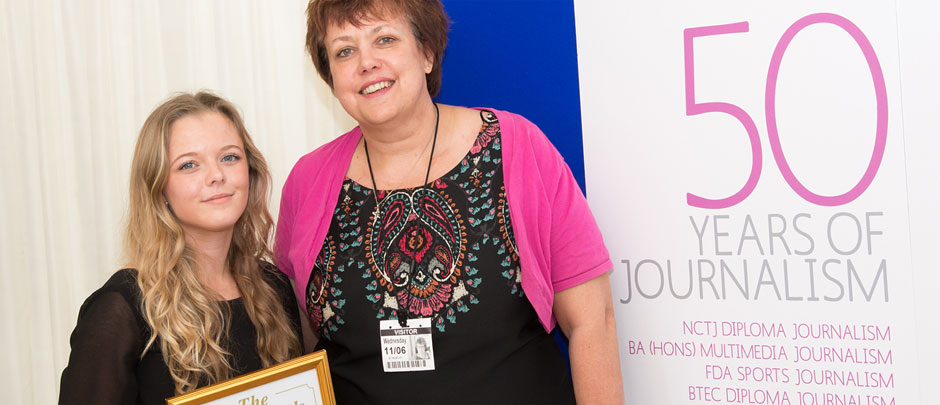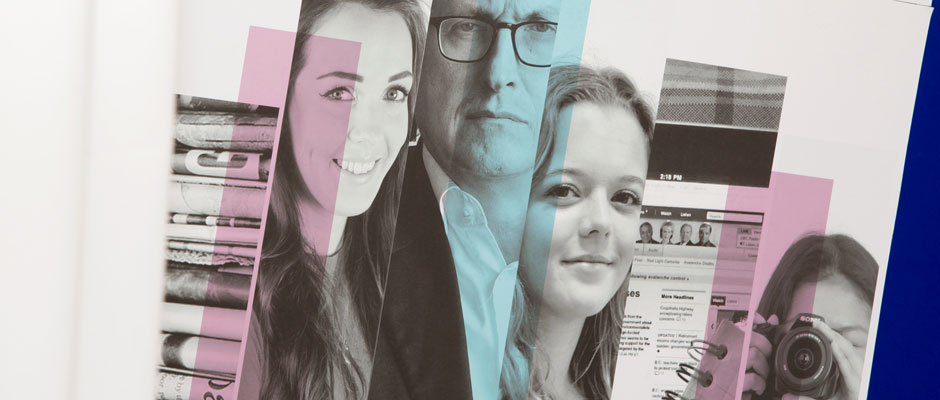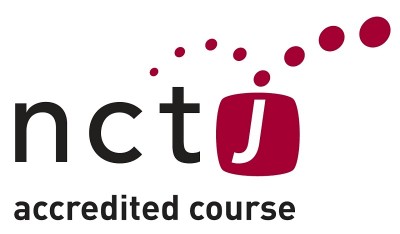
Please note that all courses are subject to a minimum number in order to run
About the course
This fast track course, regarded by many editors as the gold standard in training, helps to open doors into the industry. The course is intensive and the pressure to meet deadlines is real. You need to be committed but there will be plenty of fun on the way. You will meet lots of like-minded people who could be good contacts in the future. The course offers pathways in news and magazine journalism and includes a range of modules specifically designed to maximise your employability once you graduate. Final assessment is conducted via examination and coursework and will help to prepare you for the pressures of the newsroom, where you will be asked to produce concise and accurate stories to deadline.
Entry requirements
4 GCSEs at grade 4 or above, including English Language.
University degree, or professional experience accepted.
How much does it cost?
Full cost £4,170. If you're aged 19+ you can apply for an Advanced Learner Loan.
Contact Us or call 01279 868100 to get the most up-to-date info on fees and the financial support that may be available.
Awarding Body
NCTJ
Why study?
Core modules include essential news (news writing), media law, ethics and regulations, and the e-Portfolio, which will contain the best stories you have published whilst studying on the course.
Depending on what pathway you choose, optional modules might include magazine journalism, shorthand, court reporting, politics, and sub-editing (removing errors and editing content prior to publication). Other modules concentrate on video, social media, and preparing content for publication online.
Educational trips:
Trips can include one or more of the following: The Houses of Parliament, Crown and Magistrates courts, BBC Essex radio, the local council, and the offices of a national newspaper.
Work Placement/Industry Links:
We retain good relationships with a number of news and magazine publications in the local area. Students are required to secure a regular work placement at a local newspaper or magazine whilst on the course. Placements are conducted one day a week for the duration of the course.
Where will this course take me?
Possible careers:
- Editor
- Deputy Editor
- Print journalist/reporter
- Broadcast journalist
- PR officer
Once you have completed the programme you can seek employment with local or regional newspapers where you are likely to enter into an 18 month training programme at the end of which you can sit the NCTJ National Certificate Examination (NQJ). You will then have the full qualifications to become a senior reporter.
Core modules
- Essential Journalism
- Ethics and Regulations
- Media Law
- E-Portfolio
Optional modules
- Practical Magazine Journalism
- Video Journalism for Digital Platforms
- Court Reporting
- Shorthand of Journalists
- Public Affairs
- Editing Skills for Journalists
- Journalism for a Digital Audience
Those wishing to progress to the NCTJ Level 6 National Qualification in Journalism (NQJ) must achieve Gold Standard*.
How will I be assessed?
Exam and coursework
Will I have to provide anything?
For journalism classes you will need a reporter’s notebook, a pen drive, a dictionary and a contacts (address) book.
I'm interested. What should I do now?
Call 01279 868100 and talk to an Admissions Adviser
Ask Us a question about this course![]()





